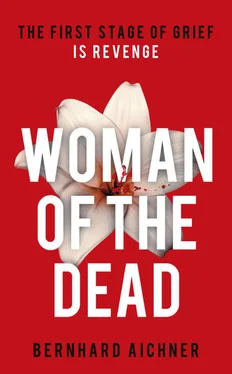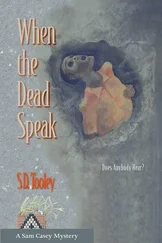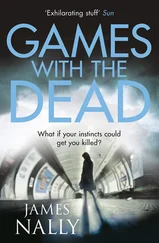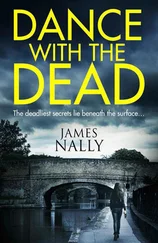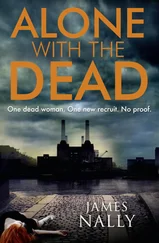It was punishment and torment. Later on it was all in a day’s work, but at first it was hell. She wiped out eyes and mouths a thousand times, cleaned blood and maggots away from wounds, touched cold, dead skin. There were disfigured corpses, severed body parts. It was no sort of childhood, she had no birthday cake, no candles, no dolls to dress and undress, only the dead. Big dolls, heavy dolls, hairy arms and legs, heads so heavy that she could hardly hold them, motionless mouths. Not a smile, not a kind word, nothing. Only her father driving her on. Through countless bodies, faces, genitals and shit. A girl of ten wearing plastic gloves. Her mother would call her in for supper as if she had been playing with other little girls in the garden. Supper’s ready. Wash your hands. Don’t keep Papa’s favourite dinner waiting. A nice roast for Papa, an accident victim for Blum. Hagen would put his loaded fork to his mouth. Blum would think of dead flesh, of old men with sores and papery skin, of the urine and blood in the room next door that she would have to mop up after supper. This tastes delicious, Herta, a real poem of a dish, as always . And Blum would push her plate away.
For as long as she can remember, there have been dead people around. They came in hearses, in ambulances, from autopsy tables, they came straight from their beds, where they had fallen asleep for ever; they came with heart attacks, stabbed, murdered, they came from the autopsy table, they simply came into Blum’s life, invading her little world. No one asked her whether that was what she wanted. Whether she could cope with it. They were simply there, dead people sprawled on the aluminium table. It was terrifying at first, but after a while quiet and peaceful. Blum reconciled herself with her world, began to accept the fact that she had no choice, that there was nowhere else she could go. That it was the living she must fear, not the dead. That realisation did her good. So did being alone with them. Whenever she could, she went into the preparation room. And in the end she made friends with the dead, she talked to them. Blum was stronger than they were. She could decide what happened to them. None of them could hurt her, never mind how big and heavy they were; they didn’t move any more. They didn’t breathe, their arms and legs simply lay there. They were like dolls, big, cold dolls. She confided in them, she told them everything and apart from that she kept quiet, not a word to her parents, she just did as she was told and then withdrew. Until now.
How the sun burns. The boat was always a respite from reality: a dream. From Trieste to Yugoslavia, to Greece, to Turkey, to Spain. Weeks on end on the boat, for weeks on end life was good. She looked forward to the time when the anchor was raised and the wind caught in the sails. When Hagen showed her the importance of the way you steered, and how to survive in a storm. Blum remembers all that she has learned and what she still has to learn, remembers the islands, the wind, and how her parents could even be induced to smile because they were on holiday. Their faces, usually so closed, opened up. Sometimes Blum even felt that she saw love in them, only briefly, a little flicker of love. For twenty years she has been looking for that, waiting for it, longing to be a normal girl, a daughter, a young woman capable of more than laying out bodies. She wants to live at last.
She is not going to move, never mind what happens, she isn’t going to stir. There is nothing but Blum and the sun on her skin. She ignores the cries and the knocking on the hull.
Two desperate bodies, swimming. They can be seen from above. They try to get a handhold, their fingernails keep scraping along the side of the boat. The good old boat, the ladder that can be folded up, the ladder that isn’t there when they shout for it. Hagen has insisted on keeping everything in its original condition, no renovations, no concessions to emergencies. Don’t get into a funk, only idiots forget the ladder up there, if that should ever happen to me you can leave me to drown. How self-confident he was; how pitiful and helpless now. Big Hagen and his Herta. There’s no way back for those two, they had simply jumped into the sea without thinking, two loveless old people. Two people with weak hearts, breathless, panicking. They’ve been screaming, they’ve been swallowing water for two hours now. They want to get back on board, they want to scale the side of the boat, they are trying everything, treading water, swimming beside the boat, weeping, screaming, drumming their fists on the wood, they call her name. Brünhilde . Again and again, Brünhilde . But Brünhilde doesn’t hear them. Never mind how loud they scream, how badly their fingers are bleeding. She knows they will die. They know it too. They know that Blum can hear them, they know she’s lying up here and doing nothing. Just listening to her music as the boat drifts on. She smiles, knowing that soon it will be over. They’ll stop screaming, and everything will finally be all right. Everything will be warm and almost happy. Only her and the sun, nothing else. She will come to life at last.
After three hours in the blazing sun, her skin is burning in silence. She can’t hear a thing now, no more knocking on the side of the boat. Hagen and Herta silenced for ever. Nothing is left, no past to which she must return. Blum will steer the boat now, bring it back to Trieste, she will renovate the house, build a new chapel of rest, a new preparation room, she will redevelop the whole place to the last nook and cranny. She’ll throw away everything that reminds her of those two, take it to the rubbish dump. She is twenty-four years old. Now she’ll stand up, get dressed, and radio the coastguard station, send a desperate message: her parents have disappeared without trace, just like that, while she was asleep. She will take a gulp of spirits from Hagen’s flask and wait for help. She’ll repeat her horror over the radio, she will scream and shed tears.
Forty minutes pass. Blum scans the sea for them while she waits. There is not a trace of Hagen. Or Herta. They simply disappeared in a tragic accident, two bodies with water in their lungs washed ashore or fished out of the sea.
Blum stands on deck, waving. Shouting for help when she sees the boat. A small yacht, sailed by a tourist and not the coastguard, is the first to respond to her desperate cries. Blum, trembling, tells him what has happened. The stranger comes aboard to help her, looks after her, searches the boat and scrutinises the sea around it. His voice does her good, consoles her, so do his arms as he puts them around her. Just like that, with sudden affection. His hands, the sunburn, her skin. I went to sleep. It’s my fault, we must find them. Where are they, for God’s sake, where can they be? What have I done? We must go back and search for them, they’re not there any more. They’ve gone, they’ve simply disappeared. What if they’re dead? She screams this out loud, tears herself away from him, strikes her own face again and again, blaming herself. It’s my fault, she cries. When he tries to hold her she strikes him too, she weeps, she tries tearing herself away. She must do everything exactly right. Everything she says and does now must convince him, there must not be a moment’s doubt in his mind. This attractive man. She lets him hold her, she is very close to him, her face on his chest, he holds her, she is breathing fast, she can smell him, she hears him. She hears his voice, whispering. My name is Mark , he says. I’m a police officer, everything will be all right.
Uma jumps. Her little body flies through the air; there is a big smile on her face, she has small white teeth and happy eyes. A little girl of three; how cheerfully she lands and accepts the waiting embrace, snuggles close. Mama, I had a dream about a bear, he growled ever so loud, he wanted to eat me up. I had to run away, Mama . Blum hugs her, tenderly runs her fingers over the little head, touches the child’s cheek and tells her that the bear only wanted to play, it was just a dream. Nothing bad is going to happen; I’ll look after you. Blum’s daughter Uma started talking a few months ago, she is an angel with blond curls. There’s another angel too. Nela has gone back to sleep, lying contentedly in the crook of her father’s arm. The children are in their parents’ bed, first thing in the morning. It is a perfectly normal day for Blum and Mark.
Читать дальше
